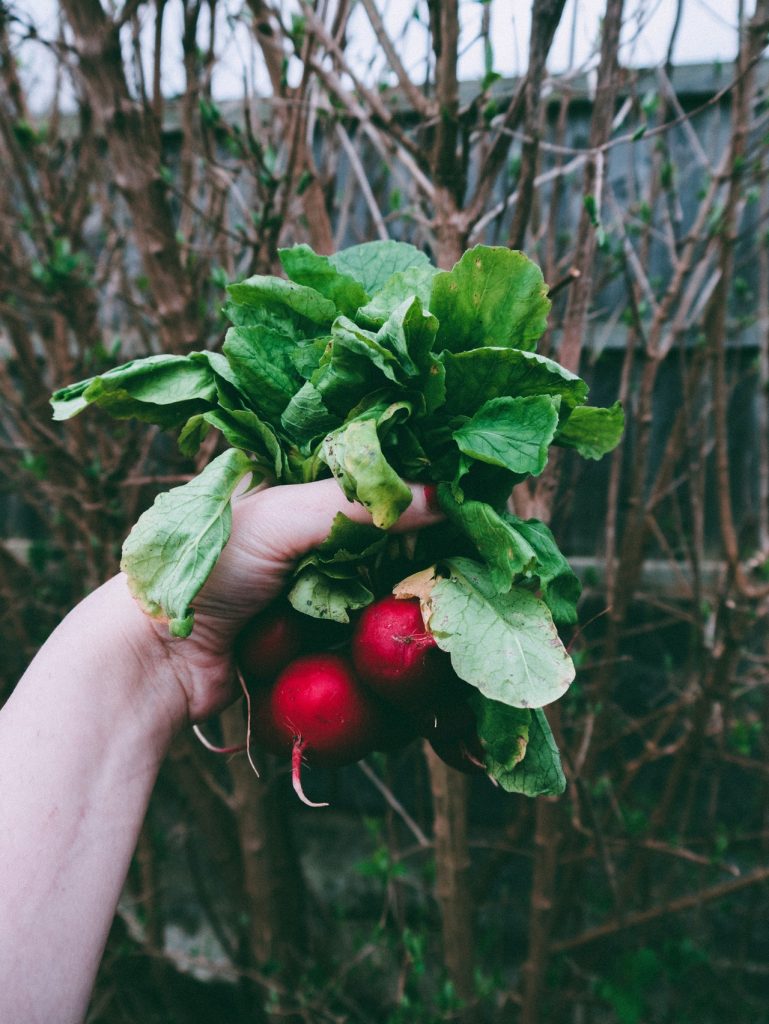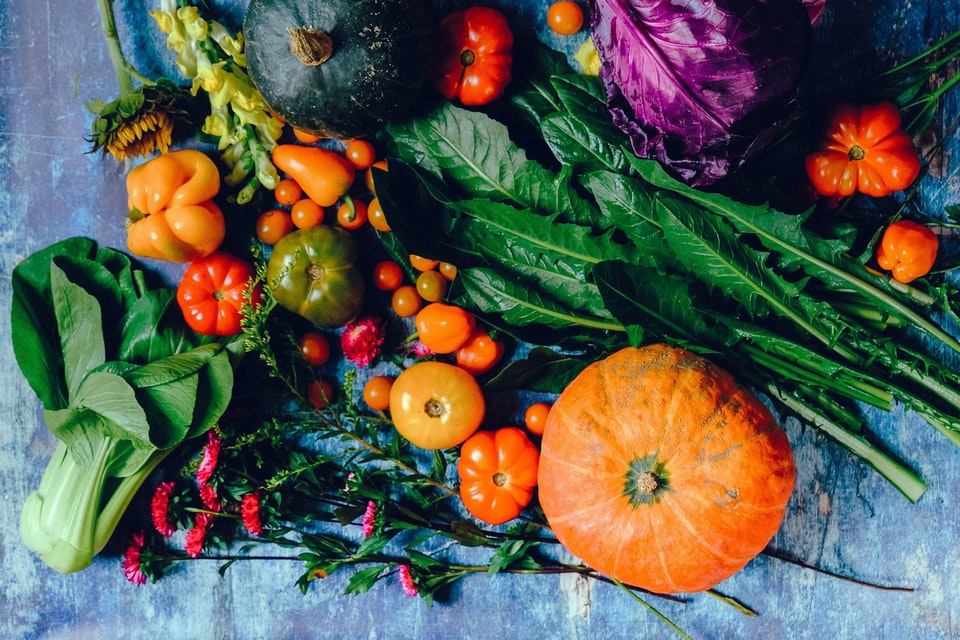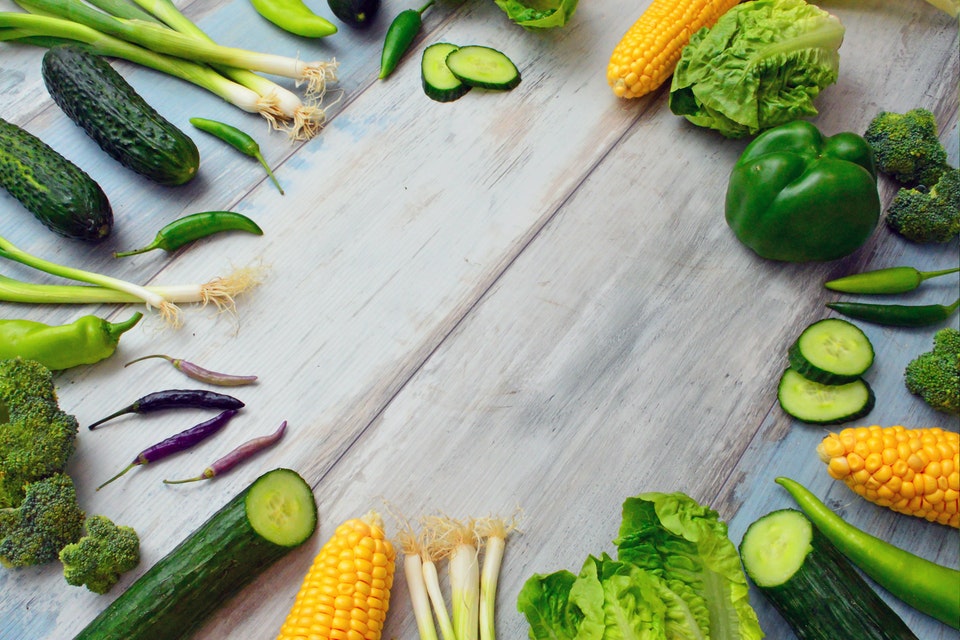You might not admit it yet, but if you’re here, you secretly hate the idea of eating genetically modified fruits and vegetables. Thinking of the human-made fertilizers, chemicals, and other nasties that were used to achieve harvest can be incredibly disturbing. It deprives you of all the joy of eating vegetables and fruits.
But what if you could learn how to grow an organic vegetable garden? Imagine how tasty and fresh all the vegetables and fruits you eat could be? Well, it is possible. Be our guest and learn how to start an organic garden, how to take care of your plants and protect them from pests.
Sounds complex? Yes, but it’s not. You only need to keep these five principles in mind: biodiversity, good site, sustainable resources, healthy soils, and, most importantly, avoidance of chemicals.
However, the garden won’t fend for itself, so take a sec and find your gardening shoes before we proceed to the horticulture matters.
Now that you’re well equipped with your boots to visit your garden, let’s get down to business.
1. Find a Perfect Spot for Your Organic Garden
Not every corner of your household fits for your organic garden. Before you settle for a spot, walk around, and survey all the potential plots. Ideally, you’ll be looking for a site that receives sunlight for at least eight hours a day. Most vegetables and fruits will require sun and heat for photosynthesis.
What if you don’t find a spot with enough sun rays? You’ll need to get plants that grow better in cloudy weather. Some of them include herbs, greens, and lettuce.
Pro Tips
- The best site for your garden is one that is well-leveled, has an excellent draining spot, and is well protected from the wind by walls, hedge, or a windbreak.
- Even if you don’t have a big space, you can grow a lot of food in small beds or pots.
- If it’s your first time, start little by little. This will allow room for mistakes and learning all potential challenges before you expand.
- Set realistic goals in terms of the time you can spare for your garden and the amount of food you can consume.
2. Use the Right Organic Garden Soil
For your organic garden to produce well-nourished and healthy fruits and vegetables, you’ll need to choose the right soil. When your soil is healthy, fertile, and has the perfect structure, your plants effortlessly absorb nutrients and water that boosts their growth.
Supplement your soil with organic garden fertilizer. This can range from leaf mold, rotten manure to homemade compost. These products release nutrients and stimulate important microorganisms that improve soil conditions.

Pro Tips
- Feeding plants with natural liquid helps them to cope with stress
- Worms improve the soil drainage through aeration
- Growing Phacelia tanacetifolia or other green manures attract pollinating insects, and it’s a fantastic soil improvement hack.
- Mycorrhizal fungi allow better root nutrition.
3. Choose the Right Fruits and Vegetables to Grow
Now keep in mind that our objective is to avoid any chemicals as much as we can. Therefore, begin by hunting organic plants and seeds. But one thing for sure: many grown plants are full of chemical fertilizers and pesticides, while others are genetically modified.
So, if you want a pure organic garden supply, be prepared to research and pass on multiple seeds before you get “the one.” When picking organic seeds, it’s crucial to enquire about the care and environment they need. Determining the right crops that will sustain in the conditions and efforts you can provide will give you a high chance of success.

4. What Do Your Plants Need?
Now that you’ve got the right spot, good soil, and the required vegetables, all that is left is to consider some tips to take care of your garden. For starters, pay attention to the needs of your plants, such as watering their roots and not their foliage. Being frequent in your organic garden will allow you to catch the diseases and pests right on time. You can then use organic pesticide for vegetable garden to prevent any spreading.
Besides protecting your veggies from pests and scabs, you’ll also need to keep your garden space healthy. This calls for adequate hygiene, a diverse growing system, and close observation.
Remember to use natural control measures of weeds such as leaf mold, composted straw, or a layer of bark mulch. You can also add physical barriers such as cages or netting to protect the ripening fruits.

5. Observe Biodiversity in Your Organic Garden
Lastly, you’ll need to establish a food chain to make wildlife work for you. For example, attracting frogs will help in extirpating snails as ladybirds deal with greenflies.
Similarly, having colored flowers will attract all sorts of insects, including bees, which means more pollination and subsequently, more yields.
Also, ensure you rotate your crop once in a while to prevent the build-up of diseases in your soil. It’s also crucial to use the right watering mechanism because you don’t want your plants to become vulnerable to attacks.
Pro Tip
It’s advisable to grow some crops together. For instance, if you have a bed with sweetcorn, beans, and squash, they will offer shelter and protection for each other. The large squash plants provide shade to sweetcorn and act as natural mulch by regulating moisture from evaporating from the soil’s surface.
On the other hand, tall corn stems offer beans a sturdy surface to climb up, as beans add nitrogen to the ground.
Start an Organic Vegetables Garden
Are you sick and tired of the inorganic vegetables and fruits in your grocery store? If the answer is yes, there is a PERMANENT solution to your problem, which is starting your organic garden. With a few pots or a small bed, you can get healthy harvests.
So, what’s stopping you from getting started? Let us know in the comment section. And share the love if you’re already eating produce from your garden.
Author’s Bio
Ronald Pratt has been a vegetarian for 5 years now. After realizing that the use of chemicals was rapidly increasing, he decided to start her organic garden. With the rising number of inquiries, he started a blog to teach everyone how to start and grow their organic produce.

Leave a Reply